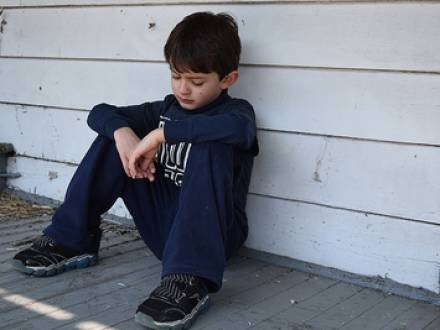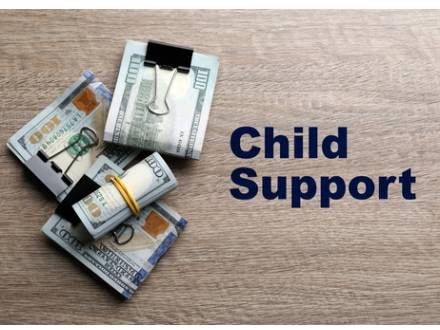Recent Blog Posts
What You Should Know About the Illinois Domestic Violence Act
 Domestic violence and orders of protection are closely associated in Illinois. More specifically, orders of protection are a legal option for victims of domestic violence, mainly because of the Illinois Domestic Violence Act (IDVA). It offers an avenue to protection and requires officers to assist victims in very specific ways. If you have suffered or think you may have suffered from domestic violence, you may need a Geneva, IL domestic violence attorney to walk you through the legal resources available to you.
Domestic violence and orders of protection are closely associated in Illinois. More specifically, orders of protection are a legal option for victims of domestic violence, mainly because of the Illinois Domestic Violence Act (IDVA). It offers an avenue to protection and requires officers to assist victims in very specific ways. If you have suffered or think you may have suffered from domestic violence, you may need a Geneva, IL domestic violence attorney to walk you through the legal resources available to you.
How Is Domestic Violence Defined in Illinois?
According to the IDVA, the violence you suffer does not have to be physical abuse, even though it is covered. It can also include harassment, interference with personal liberty, intimidation, and willful deprivation. For it to be domestic violence, the person committing the act against you must be someone from your family or household. This could include a spouse, co-parent, former spouse, roommate, or anyone living with you.
What Should You Know About Guardians ad Litem?
 From custody agreements to child support orders, children are often centered in family court cases. To protect their best interests and ensure their voices are heard, the court appoints a guardian ad litem (GAL) to be the unbiased voice for children. They bring a singular perspective, concerned only with the welfare of the child. Consider the duties of a GAL and how they may relate to your case, and if you have questions, a Kane County, IL family law attorney can help you feel more comfortable about their role.
From custody agreements to child support orders, children are often centered in family court cases. To protect their best interests and ensure their voices are heard, the court appoints a guardian ad litem (GAL) to be the unbiased voice for children. They bring a singular perspective, concerned only with the welfare of the child. Consider the duties of a GAL and how they may relate to your case, and if you have questions, a Kane County, IL family law attorney can help you feel more comfortable about their role.
What Are the Duties of a Guardian ad Litem?
A GAL is typically appointed in divorce, adult guardianship, and child protection cases. While their duties may vary from case to case, common responsibilities include:
Five Reasons Divorce Mediation May Fail
 In many family law cases, especially those that involve children, the court may require mediation, although in some cases, the judge may waive court-ordered mediation. This usually happens only when it is clear that mediation will not be successful for the parties involved. Whether a couple is ordered to mediation during a divorce or agrees to it on their own, mediation requires active participation, as well as a willingness to communicate and accept resolutions for disputed issues.
In many family law cases, especially those that involve children, the court may require mediation, although in some cases, the judge may waive court-ordered mediation. This usually happens only when it is clear that mediation will not be successful for the parties involved. Whether a couple is ordered to mediation during a divorce or agrees to it on their own, mediation requires active participation, as well as a willingness to communicate and accept resolutions for disputed issues.
When the court requires you to meet with a mediator - a neutral third party who will help you resolve your disputes – all divorce-related issues will be discussed. This includes the division of marital assets, the award of spousal support, and the allocation of parental responsibilities and parenting time. Post-divorce issues can also be brought before a mediator, such as one parent’s desire to move from the area or change the child’s school.
Can a Parent Be Deemed Unfit in Illinois?
 While it may not be all that unusual for an ex-spouse to claim a child’s other parent is "unfit" during or after custody (parental responsibility allocation and parenting time) decisions, this is not a claim that should be taken before a judge without compelling evidence. Family courts do not determine whether a parent is unfit without facts to support the assertion.
While it may not be all that unusual for an ex-spouse to claim a child’s other parent is "unfit" during or after custody (parental responsibility allocation and parenting time) decisions, this is not a claim that should be taken before a judge without compelling evidence. Family courts do not determine whether a parent is unfit without facts to support the assertion.
If your ex sent your five-year-old to school in his or her pajama bottoms, forgot to pick up your teen after soccer practice, or routinely lets the children have ice cream before dinner, you might consider these things bad parenting. If you take issues like these before a judge, he or she is likely to be annoyed with you for taking up the court’s time on such insignificant issues.
If the child’s other parent actually is unfit, there is a high burden of proof that will need to be met before the court agrees with your assessment. Speaking to a Geneva, IL family law attorney can help you decide whether your ex-spouse’s parenting is bad enough to get the court involved and have him or her declared unfit.
What is a Motion for Enforcement, and When Do You Need One?
 You may have made it through your divorce relatively unscathed and are looking forward to starting a new chapter in your life. After all, there are now court orders in place governing parental responsibilities, parenting time, child support, spousal support, and the division of marital assets and debts. But what happens if your ex-spouse refuses to comply with one or more of these court orders?
You may have made it through your divorce relatively unscathed and are looking forward to starting a new chapter in your life. After all, there are now court orders in place governing parental responsibilities, parenting time, child support, spousal support, and the division of marital assets and debts. But what happens if your ex-spouse refuses to comply with one or more of these court orders?
While the added stress this will cause you is a given, do you have any recourse? You do have options for an ex-spouse who is willfully ignoring court orders. You can ask the court for a motion for enforcement through your Geneva, IL family law attorney. This means asking the court to review the violation or violations, enforce the order, and potentially impose penalties for noncompliance.
When Could a Motion for Enforcement Become Necessary?
When your child’s other parent refuses to follow the parenting time schedule, perhaps even actively preventing you from seeing your children, a motion for enforcement could be necessary. Being late dropping off the child once, or even two or three times, is rarely reason enough to file a motion for enforcement.
Can a Parent Lose Parenting Time for Leaving a Child Alone?
 Your divorce is finally over, and you and your ex have settled into a routine with the children that seems to be working fairly well. He has parenting time with the children one night during each week and every other Friday through Sunday. You have one child who just turned 14, one who is four, and one who is eight. As difficult as your divorce was, you have never really had any qualms about his ability to parent your children.
Your divorce is finally over, and you and your ex have settled into a routine with the children that seems to be working fairly well. He has parenting time with the children one night during each week and every other Friday through Sunday. You have one child who just turned 14, one who is four, and one who is eight. As difficult as your divorce was, you have never really had any qualms about his ability to parent your children.
Then you get a call at 11:00 p.m. on Friday night. It is your fourteen-year-old who is crying and telling you she and her siblings are alone – their dad is nowhere to be found. You immediately attempt to call your ex, but the calls go straight to voicemail. As you drive to his home, you are torn between worrying that something could be wrong with him and being furious with him for leaving the children alone.
There is no sign of your ex or his car, and he is still not answering his phone, so you gather up the children and take them to your home. Saturday morning, you receive an angry phone call from your ex, berating you for taking the children. After all, he says, the eldest is fourteen, so that makes it "legal" in Illinois. He says he went out with friends; the children were asleep and safe, and that you are the "kidnapper" for taking them from his home.
Can You Divorce a Spouse with Dementia?
 Few people enter marriage with the expectation that they will one day divorce. Yet couples who have been married for decades can suddenly face unexpected, often insurmountable challenges. One of these challenges can occur when one spouse develops dementia or Alzheimer’s.
Few people enter marriage with the expectation that they will one day divorce. Yet couples who have been married for decades can suddenly face unexpected, often insurmountable challenges. One of these challenges can occur when one spouse develops dementia or Alzheimer’s.
While the symptoms of both dementia and Alzheimer’s are similar, dementia is an umbrella term that describes a collection of behavioral, functional, and cognitive symptoms. Alzheimer’s is the most common disease that causes dementia, but vascular disease, Lewy Body disease, and Frontotemporal degeneration can all cause dementia. Alzheimer’s is a progressive brain disease that slowly destroys a person’s memories and ability to think and reason.
Alzheimer’s can start 5,10, or even 20 years before symptoms appear. While many people pledge to stay together in sickness and in health, the symptoms of dementia and Alzheimer’s can often make a marriage untenable. Obviously, this is a very challenging issue that can benefit from speaking to an experienced Geneva, IL family law attorney.
The Impact of Gray Divorce on Adult Children
 Baby boomers currently have the highest divorce rate in the United States, and they are the only generation to increase their divorce rate as they age. Divorce is usually difficult and often messy and contentious regardless of how long a marriage lasts. While children often bear the brunt of a chaotic divorce, even grown children can have difficulty accepting a divorce, especially when the parents are in their 50s, 60s, or even 70s.
Baby boomers currently have the highest divorce rate in the United States, and they are the only generation to increase their divorce rate as they age. Divorce is usually difficult and often messy and contentious regardless of how long a marriage lasts. While children often bear the brunt of a chaotic divorce, even grown children can have difficulty accepting a divorce, especially when the parents are in their 50s, 60s, or even 70s.
It can take sensitivity and understanding to help adult children get through the divorce of their older parents. There are also many issues that older divorcing couples need to consider that younger couples might not. An experienced Geneva, IL family law attorney can guide you through the process in the best possible way.
Why Are Older Americans Divorcing So Often?
While some older couples divorce for many of the same reasons younger couples do (infidelity, money issues, drug or alcohol addiction), there are some additional reasons for divorce that apply to older couples, including:
Preparing for Your First Meeting with a Divorce Lawyer
 If you are contemplating divorce or your spouse has already filed for divorce, it is extremely important that you contact an experienced divorce attorney who can represent your interests. However, this is not a situation where one divorce attorney is the same as another. Having an inexperienced or ineffective divorce attorney can result in the divorce taking longer and costing considerably more.
If you are contemplating divorce or your spouse has already filed for divorce, it is extremely important that you contact an experienced divorce attorney who can represent your interests. However, this is not a situation where one divorce attorney is the same as another. Having an inexperienced or ineffective divorce attorney can result in the divorce taking longer and costing considerably more.
Since choosing the right divorce attorney is so important, reviewing past cases and looking at each lawyer’s reviews can help determine whether the attorney is right for you and your unique situation. When you have a Geneva, IL divorce attorney who will strongly advocate on your behalf, you have taken an important first step in the divorce process.
How Do You Choose a Divorce Attorney?
Many people who are looking for a divorce attorney will ask friends, family members, or co-workers for a referral. Others may look online at divorce attorney websites in the area and choose several that seem like a good fit. Appointments can be set up with two or three attorneys, and after speaking to all the choices, you can make an informed decision regarding which attorney will be the best for your specific divorce circumstances. This initial meeting allows you to get a feel for how the attorney treats and responds to clients, ensuring he or she is a good "fit" for your divorce.
What If My Ex is Spending Child Support on Frivolous Things?
 As the parent who pays child support, you may be dismayed when you see your children with holes in their shoes while your ex has a new car, wears expensive clothing, and recently posted photos of her trip to Italy on social media. The court expects that child support will be spent on the children. This could be for a roof over their heads, food on the table, clothing and medical care, or for the specific things a child needs for extracurricular activities, toys, or a private school education.
As the parent who pays child support, you may be dismayed when you see your children with holes in their shoes while your ex has a new car, wears expensive clothing, and recently posted photos of her trip to Italy on social media. The court expects that child support will be spent on the children. This could be for a roof over their heads, food on the table, clothing and medical care, or for the specific things a child needs for extracurricular activities, toys, or a private school education.
While the court expects this is how child support will be spent - and most parents who pay child support expect the same - Illinois law does not require parents receiving child support to account for how the money is spent. This means that the paying parent who attempts to micromanage how the money is spent will have little court cooperation. Illinois child support guidelines do state that the baseline amount of support is meant to ensure the child or children live roughly the same lifestyle as they did during their parents’ marriage.


 630-844-8781
630-844-8781



